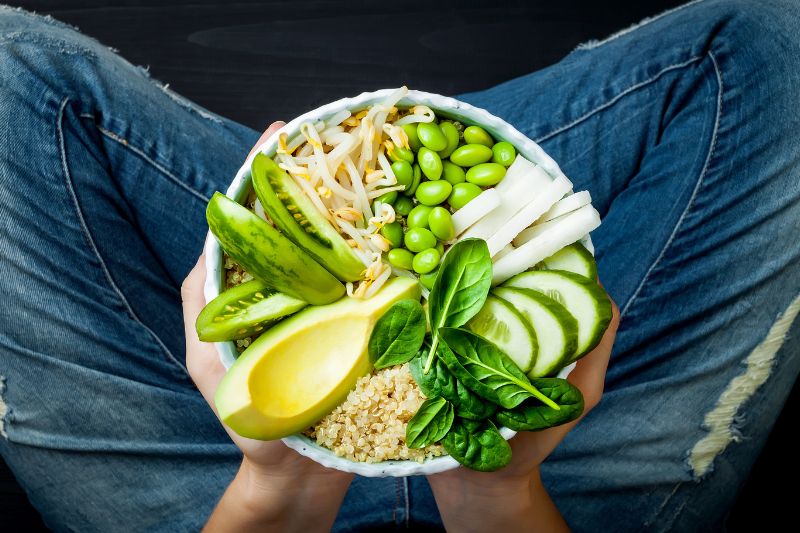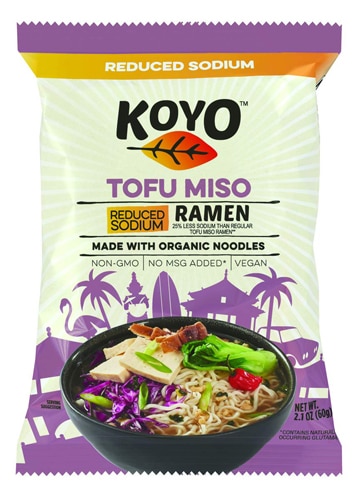[vc_row][vc_column][vc_column_text]If you have ever struggled to maintain a vegetarian diet, it's possible Mother Nature is to blame.
A person’s genetic makeup might play a role in how easy — or difficult — it is to stick to a vegetarian diet, according to researchers at Northwestern Medicine, the health care system affiliated with the Northwestern University Feinberg School of Medicine.
When genetics do not work in your favor and you are not “hard-wired” for vegetarianism, you are more likely to stumble when trying to go meatless, according to the study.
In fact, a large percentage of vegetarians — anywhere from 48% to 64% — end up eating at least some fish, poultry or red meat, the researchers say.

What the researchers found
In the study, researchers looked at genetic data from more than 5,300 strict vegetarians — those who do not eat fish, poultry or red meat — and compared it to similar data from more than 300,000 others.
The researchers found that three genes were deemed to be "significantly associated" with vegetarianism, and 31 other genes were found to be potentially associated with a meat-free lifestyle.
Two of the top three genes — NPC1 and RMC1 — are either involved in lipid metabolism, brain function or both, according to the researchers.
The researchers speculate that some people might need specific lipid components that are found only in meat. This could undermine the best intentions of those who try to remain vegetarians, but end up stumbling in their commitment.
By contrast, those who have greater success as vegetarians might have a genetic makeup that helps them to synthesize such lipid components internally, reducing the need for them to eat meat.
The challenge of remaining a vegetarian
Sharon Palmer is a California-based registered dietitian nutritionist known as “the plant-powered dietitian” and author of the book “
California Vegan.” Over the years, she has noticed that some clients struggle to stick with a vegetarian diet while others find it easier to do so.
However, she notes that factors other than genetics can play a crucial role in whether a person is able to successfully transition to a vegetarian diet.
“People who are focused on health and nutrition and already like to eat a lot of vegetables, grains and fruits tend to find that transition easier,” she says.
These folks also had a habit of eating a lot of plant-based dishes in their diets prior to becoming vegetarians, Palmer notes. “So, the shift is not that dramatic,” she says.
In addition, some cultures have diets that favor plant-based dishes, making a vegetarian lifestyle more natural to people who grew up in those conditions, Palmer adds.
Why you should eat more vegetarian foods
Even if you find a vegetarian lifestyle challenging, there are many good reasons to try to increase your intake of plant-based foods.
The American Heart Association says a plant-based diet offers numerous health benefits, including reducing the risk of:
- Hypertension
- Heart disease
- Stroke
- Type 2 diabetes
- Many types of cancer
Eating plant-based foods also can help you maintain a healthier weight and may reduce blood cholesterol levels and inflammation throughout the body, Palmer says.
“In addition, there are multiple environmental benefits for going more plant-based, such as a significantly reduced carbon footprint,” Palmer says.
Of course, it’s important to remember that just because a food is plant-based does not always mean it is healthful.
The American Heart Association notes that some foods that are ostensibly plant-based — such as fruit juices, refined grains, potatoes and sweets —
do not offer the health benefits associated with high-quality plant foods such as fruits, vegetables, whole grains and nuts.
So, it is important to choose the right plant-based foods to get the most from this type of diet.
Transitioning to plant-based eating
If you want to move away from meat-based meals and toward plant-based eating, Palmer suggests starting slow.
“Start with ‘meatless Monday,’” she says. “One day of the week, eat vegetarian. And then when you’ve got that mastered, move on to more days during the week.”
To make the transition even easier, begin with familiar meals and make them plant-based.
“Look at what you already love,” Palmer says. “For example, if you like scrambled eggs for breakfast, try
scrambled tofu.”
Other variations might include
bean tacos,
vegan deli meat sandwiches and
lentil Bolognese.
After you become more comfortable with adding more plant-based foods to your diet, branch out by trying one new vegetarian recipe each week.
“I like to do that on my least stressful day of the week when my kitchen is stocked — Sunday afternoon for me,” Palmer says. “Pretty soon, you’ll have a repertoire of interesting, delicious vegetarian recipes you can turn to.”
You can also begin to explore vegetarian options in restaurants and markets. Look for dips, frozen foods and dairy alternatives in markets. Order
grain bowls and cultural foods like
dal in restaurants.
“There are so many more food products available that can make it easy and interesting,” Palmer says.
If you eventually move to a strict vegetarian diet, it is important to remember that going meatless deprives you of a primary source of complete protein. This type of protein includes all nine essential amino acids that your body cannot make on its own.
Whole sources of soy — including
edamame,
miso, tempeh and
tofu — can provide
complete proteins. You can also get all of the proteins you need by eating a wide variety of plant foods.
However, if you want to be sure of getting all the amino acids you need, consider working with a nutritionist who can help you create the right meal plan.
[/vc_column_text][/vc_column][/vc_row][vc_row][vc_column][vc_text_separator title="Featured Products" border_width="2"][vc_row_inner equal_height="yes" content_placement="middle" gap="35"][vc_column_inner width="1/3"][vc_single_image image="170691" img_size="full" alignment="center" onclick="custom_link" img_link_target="_blank" css=".vc_custom_1701103673951{padding-right: 7% !important;padding-left: 7% !important;}" link="https://www.vitacost.com/mori-nu-silken-extra-firm-tofu-12-3-oz-2"][/vc_column_inner][vc_column_inner width="1/3"][vc_single_image image="170690" img_size="full" alignment="center" onclick="custom_link" img_link_target="_blank" css=".vc_custom_1701103699981{padding-right: 7% !important;padding-left: 7% !important;}" link="https://www.vitacost.com/seapoint-farms-dry-roasted-edamame-sea-salt"][/vc_column_inner][vc_column_inner width="1/3"][vc_single_image image="170689" img_size="full" alignment="center" onclick="custom_link" img_link_target="_blank" css=".vc_custom_1701103719683{padding-right: 7% !important;padding-left: 7% !important;}" link="https://www.vitacost.com/edward-sons-miso-cup-soup-gluten-free-reduced-sodium"][/vc_column_inner][/vc_row_inner][/vc_column][/vc_row]




